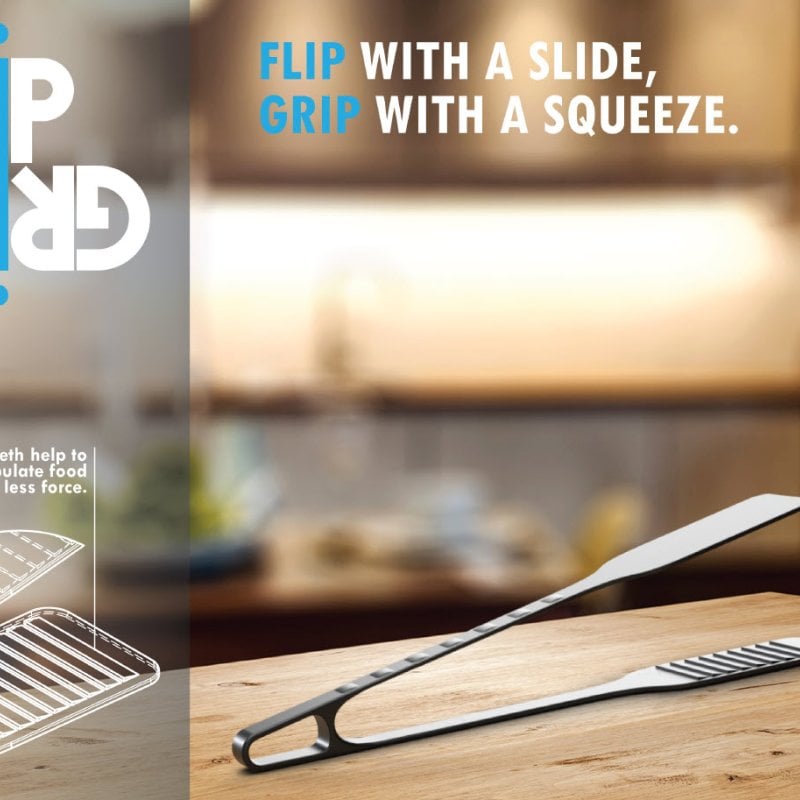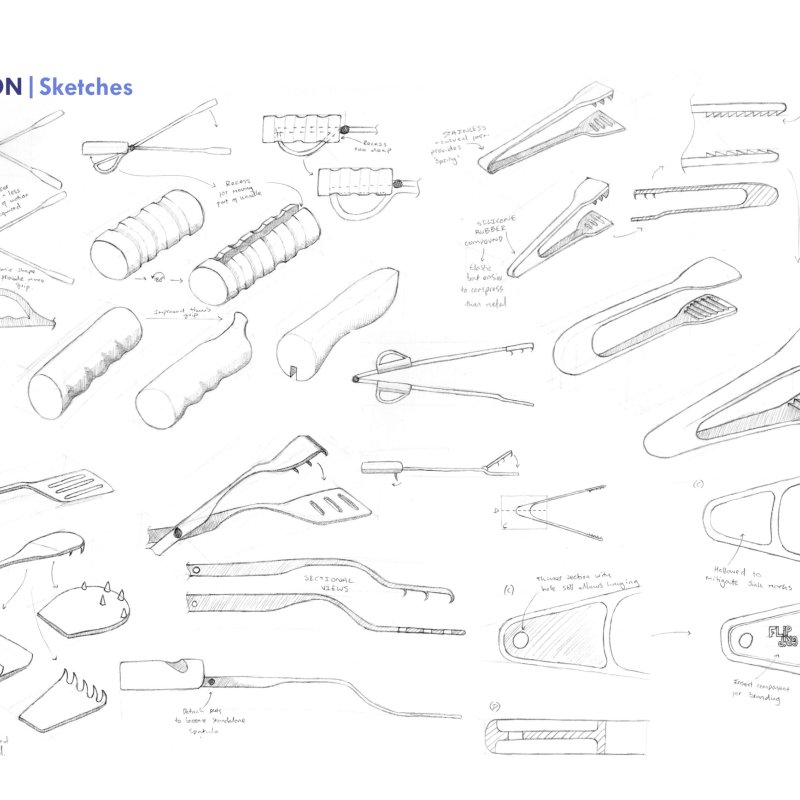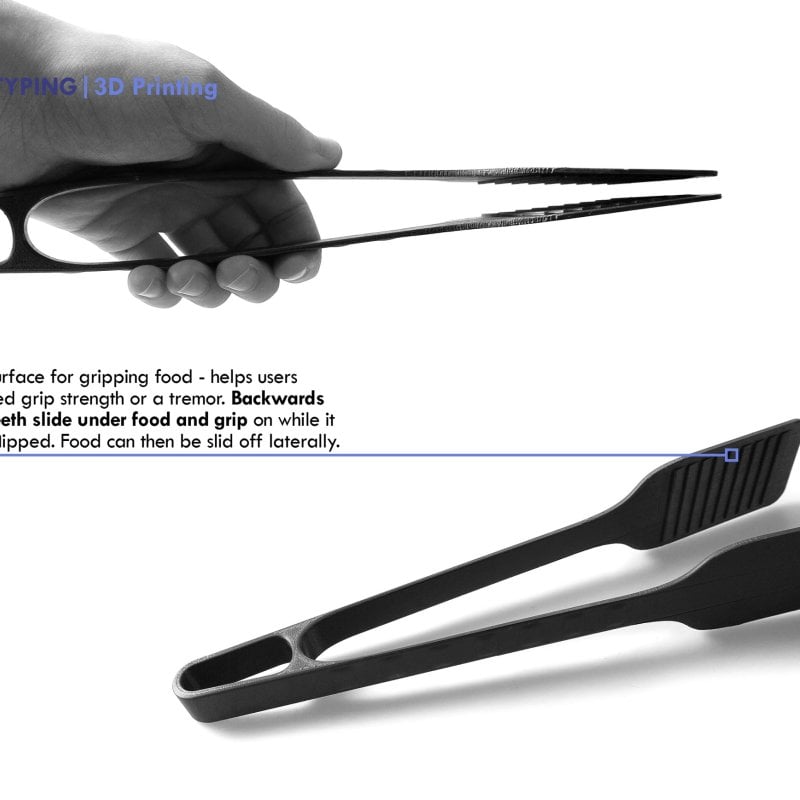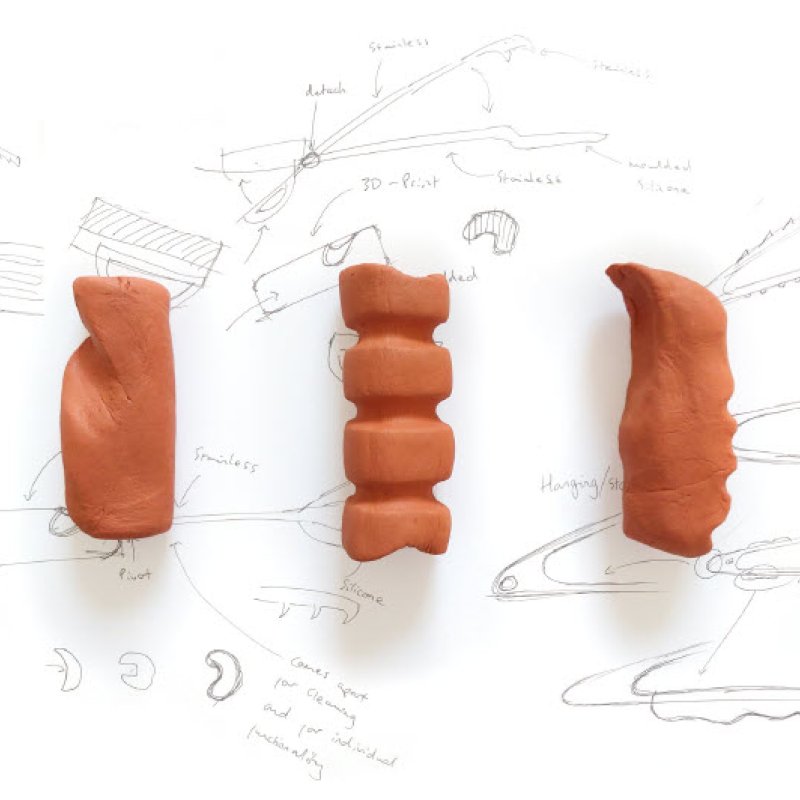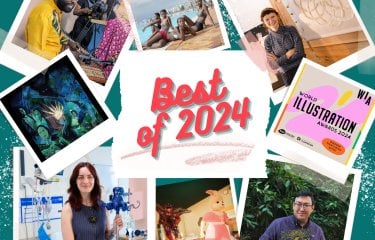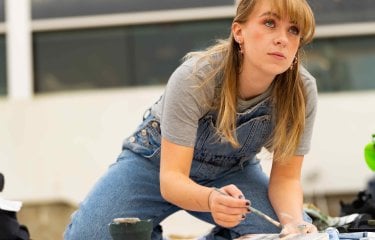Falmouth students develop assistive kitchen products in collaboration with the Royal Cornwall Hospitals NHS Trust
05 April 2024
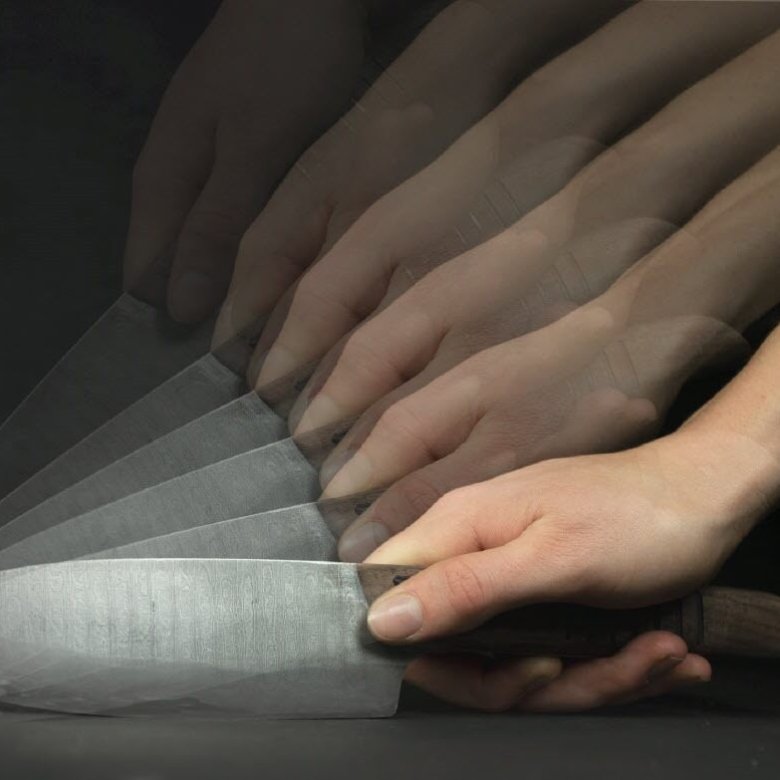
Sustainable Product Design BA(Hons) students working on the Inclusive Design module have developed a series of innovative kitchen products that have been designed to make cooking easier for people with hand strength and dexterity issues.
Working in collaboration with the Royal Cornwall Hospitals NHS Trust at Marie Therese House in Hayle, our students were provided with the opportunity to gather insights from staff and patients at the hospital and they also benefitted from feedback on their initial design concepts from RCHT staff and clinicians.
We spoke to a couple of our students about their experiences on the module, working with the RCHT and their final projects.
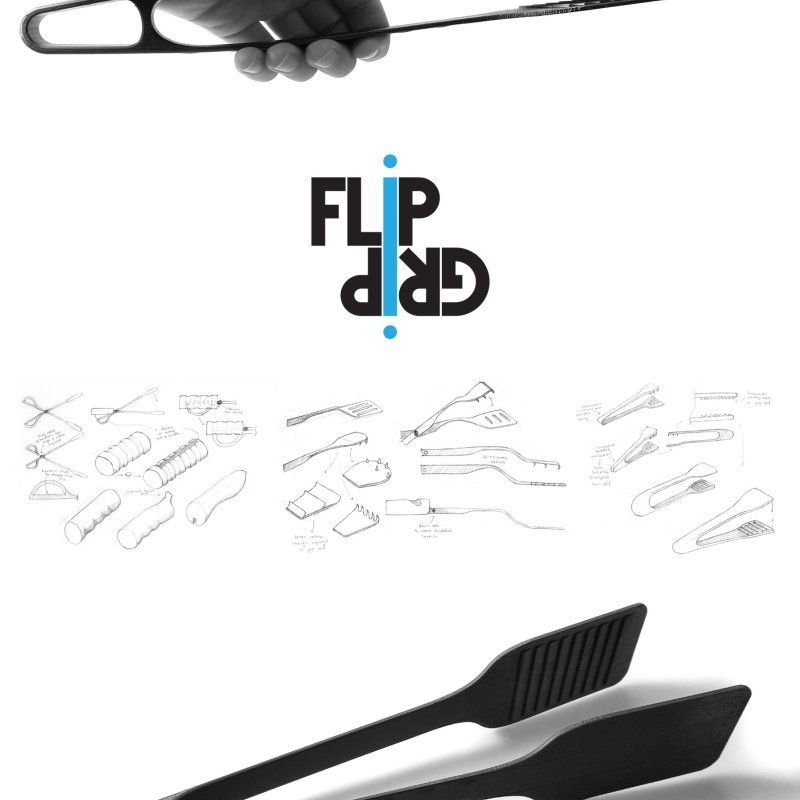
Ben Sams
Based on his experiences working in collaboration with RCHT, Ben concepted the FlipGrip. Ben’s assistive kitchen product is a take on a pair of tongs with paddles on the end that are designed to support those with reduced grip strength. The paddles can additionally act like a spatula to slide underneath food too. The product is moulded out of a single piece of plastic, which allows it to flex and return to its original position with less force required than ordinary tongs.
Talking about his design, Ben said: “The idea sparked from a moment in our visit to Marie Therese House when we were speaking to a man who had Edema in his hands, greatly reducing his grip strength and dexterity. We had taken some regular kitchen utensils with us for him to try and we asked him to place them on a scale of how easy or difficult they were to use. One that stood out to me was a pair of spring-loaded tongs, which he was unable to squeeze together with one hand. It prompted me to think of ways that the tongs could be adapted and redesigned to be accessible for more people.
"Inclusive Design was a project I became increasingly passionate about, fuelled by human-centred research with potential users, in conjunction with expert insight from RCHT colleagues, which was instrumental in providing a tangible context and purpose for my design solution."
Eva Hill
Meanwhile, based on her experiences at Marie Therese House, alongside comprehensive analysis of survey data and supporting research, Eva recognised a need for inclusive cutlery.
Eva told us: “I looked at the development of ergonomically designed handles for forks, knives and spoons, specifically tailored to the requirements of individuals with limited dexterity in their hands and arms, enhancing their ability to independently feed themselves.
“The importance is the need to seamlessly integrate functionality and aesthetics, creating a product that embodies the qualities of a high-end culinary tool rather than one solely intended for users with disabilities.”
Mia Bartram
Mia decided to design the Kantan knife kitchen product – a knife designed for the widest range of users possible but specifically beneficial for arthritis sufferers, chefs and everyday kitchen users. Mia’s Kantan design features an ergonomic shape, sharpness and grip comfort that aims to ease meal preparation and increase cooking satisfaction.
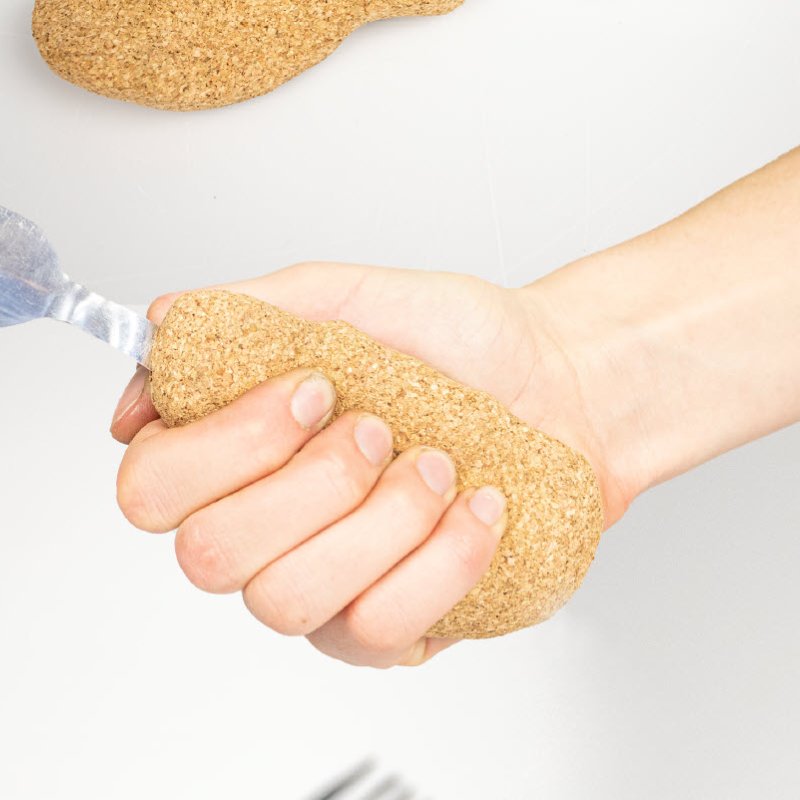
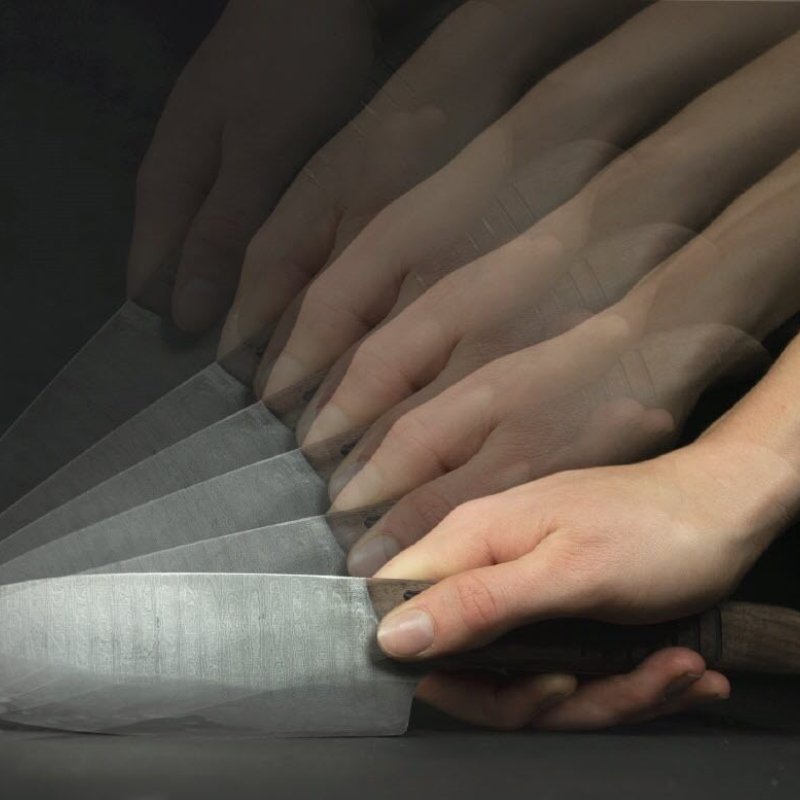
Speaking to Mia about her design, she said: “My human-centred research found that people struggle the most with cutting while preparing meals, prompting me to redesign a knife for improved dexterity. After reviewing the HCR, three key points guided me through the designing process.
“Firstly, the empathy testing highlighted the significance of sharpness in facilitating the cutting process. I discovered that the sharper the knife, the less power the user must apply, therefore I decided to use Damascus steel as the tang material for optimal sharpness and aesthetic patternation.
"Secondly, the HCR case study at Marie Therese house demonstrated how important aesthetics are in fostering positive emotional connections.
"Finally, comfort and grip improvement were prioritised, which was accomplished using a pinch mechanism and a silicone grip completely integrated into the walnut handle, providing both comfort and aesthetic harmony."
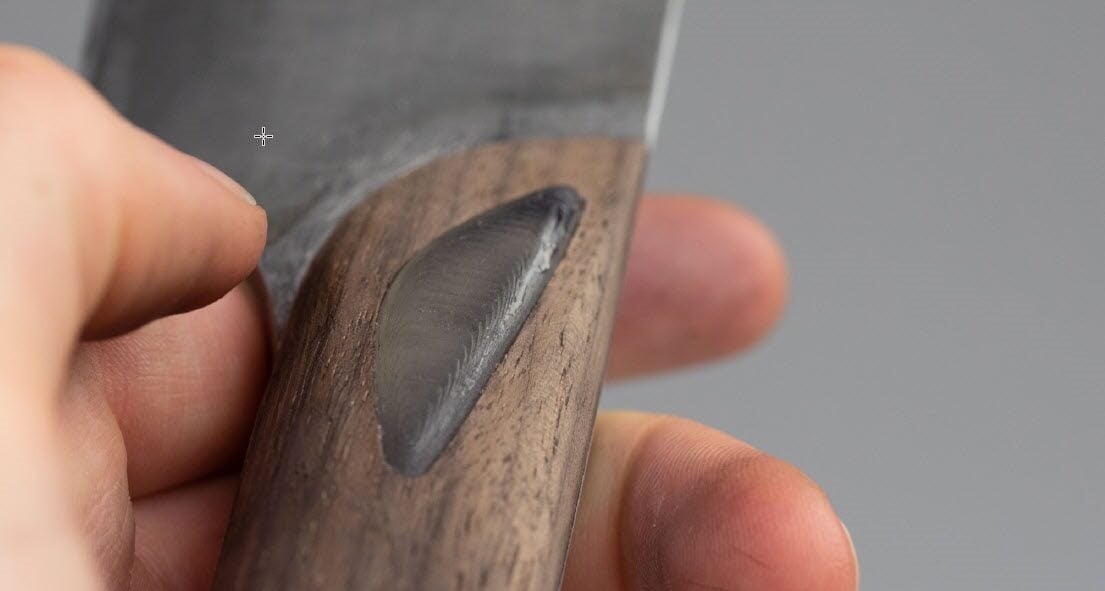
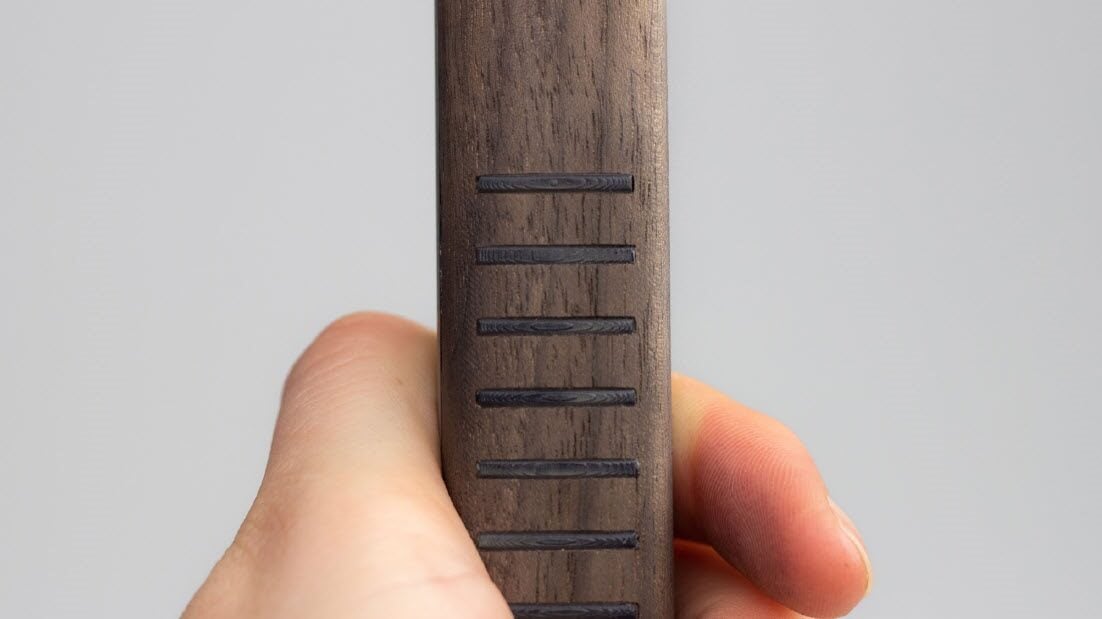
Speaking about our students’ collaboration with the RCHT, Rebecca Cave, Strategy Programme Manager & Trust Innovation Lead, said: “My RCHT colleagues and I had a fantastic day peer reviewing the work of Falmouth University students as part of their product development process. Some of our therapy colleagues had been involved in welcoming the students to Marie Therese House and Phoenix Ward in the preceding weeks for research conversations with patients and staff, so it was a delight to then see how the students used that research to inform designs for product-based solutions.
“We saw some truly innovative ideas and thoroughly enjoyed the opportunity to provide advice on further refinement. We look forward to seeing the final projects later in the academic year.”
Sustainable Product Design BA(Hons) Course Leader, Simon Andrew, said: “It’s really exciting for the students to have the opportunity to be gaining this real-world experience, and there’s potential for these types of collaborations to be developed into bigger projects. We’re very keen to look at ways in which these design concepts and ideas that we’re beginning to explore at undergraduate level could also relate to other research projects which we have an appetite for at Falmouth University. I’m really looking forward to where we take it next.”
